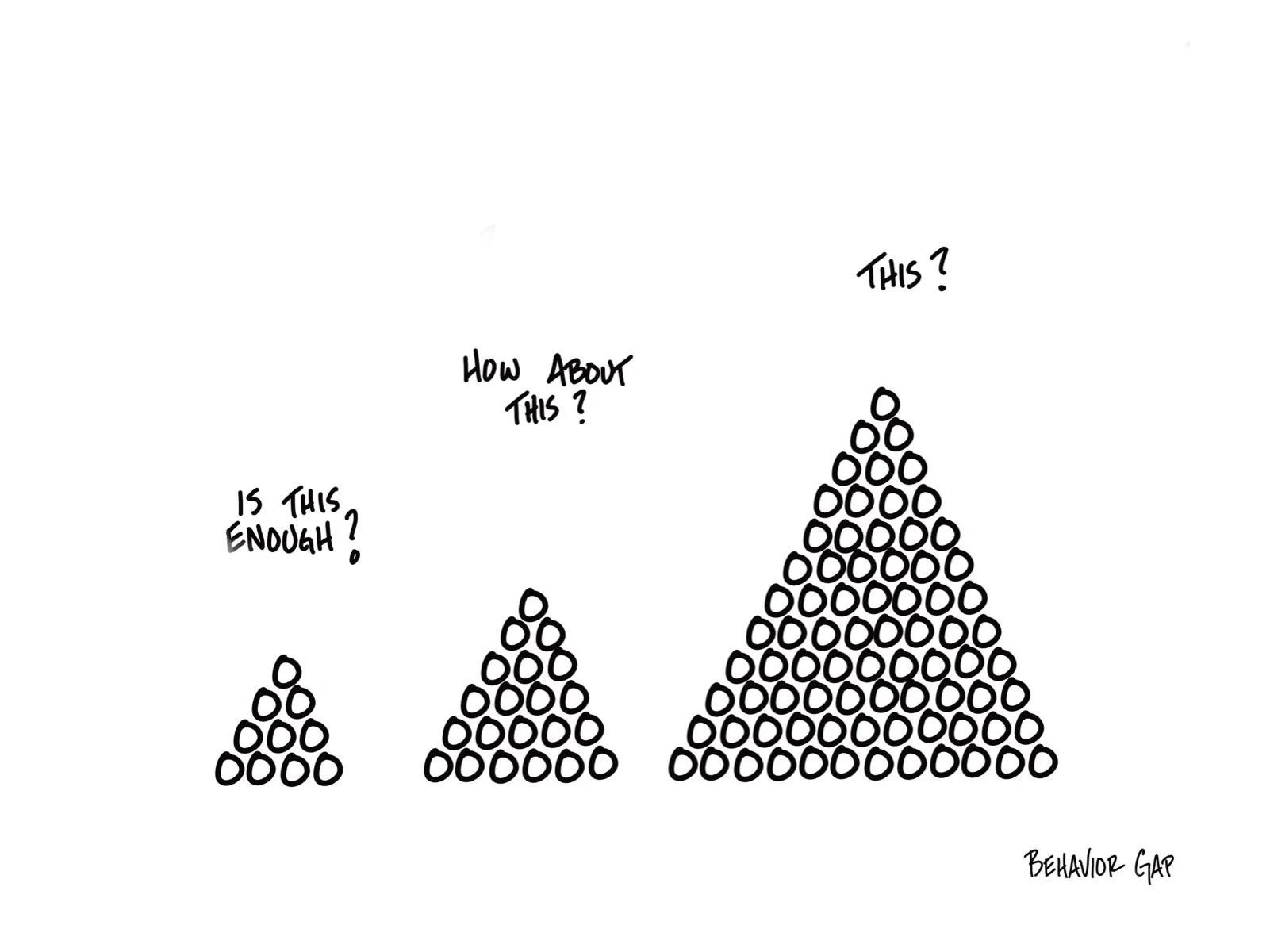Marginal Utility and Diminishing Returns
We don’t know when to stop.
At least, I sure don’t.
Sometimes, on the way home from work, I’ll swing by the grocery store, buy a pint of ice cream, and eat it.
That’s right. The whole thing.
Yes, I know. That’s a LOT of ice cream.
I’ve noticed that a very interesting thing happens when I do this:
Bite 1 Best thing in the world, ever.
Bites 2-10 Really good.
Bites 11-15 Good.
Bites 16-20 Meh.
Bites 21+ OK, now I’m sick.
I learned this lesson the first time I ate a pint of ice cream in a single sitting.
And yet, for some reason, I still occasionally repeat the experiment.
Of course, this phenomenon doesn’t only occur with ice cream. This is a well-documented economic principle called Marginal Utility, and, you guessed it, it applies to money, too.
BEYOND A CERTAIN POINT, HAVING MORE MONEY WILL NOT LEAD TO MORE SECURITY, FREEDOM, AND HAPPINESS.
Because security, freedom, and happiness do not come from more money (at least, not beyond a certain point). They come from knowing when to stop.

